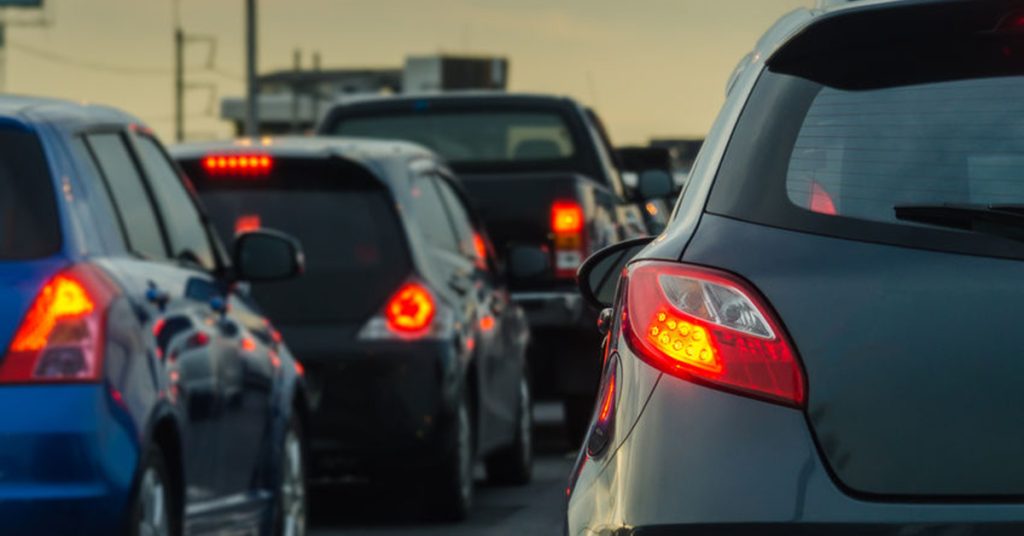Posts Tagged ‘“Massachusetts car accident lawyers”’
Planning a Safe Summer Road Trip in Massachusetts

Planning is the key to a safe summer road trip.
By now, many of us are ready for a summer road trip. Maybe you cannot reach your first-choice destination due to COVID-19 travel restrictions. Or maybe you are just taking it slow with a day-trip. Whatever your plan, we hope you can fit in some fun while practicing safety.
First, make sure your vehicle is ready. Check your vehicle’s systems. By taking some time now, you are less likely to breakdown or cause a car accident resulting in injury, motor vehicle damage and stress.
Check for Auto Recalls
Find your Vehicle Identification Number (VIN). Then, check the federal auto recall website, managed by the National Highway Traffic Safety Administration (NHTSA). You can also sign up for email alerts from this page.
Each year, there are millions of auto recalls. Drivers are not always properly informed by manufacturers. Without any warning, drivers keep operating vehicles, increasing the risk for a malfunction. Be pro-active about checking on auto recalls. The thorough database contains recalls up to 15 years back. One caveat is the database does not identify vehicles which were recalled but have now been repaired.
Collect Your Owner’s Manual
Make sure you have your owner’s manual in your glove compartment, along with your motor vehicle registration and auto insurance information.
Have Your Car Serviced
Before you travel:
- Check your vehicle maintenance records
- Schedule a tune-up, oil change or battery check as needed
- Check when your car last had a tire rotation
- Make sure your air conditioning system is properly working as well
If you have any questions, schedule an appointment with a mechanic or garage.
Roadside Assistance
Purchase an auto club membership before you travel. Due to COVID-19, you may not be traveling as far as you wanted this year. You may just be day-tripping to Cape Cod. Still, anytime you travel on the highway, an auto membership is a valuable tool.
Stocking Up
The NHTSA advises drivers to stock up on essential supplies before you travel.
- Cell phone and charger
- Nonperishable food, drinking water and medications
- Paper or printed maps (in case you lose cell phone coverage)
- First aid kit
- Flashlights
- Flares and a white flag
- Jumper cables
- Tire pressure gauge
- Jack
- Work gloves and extra clothing
- Extra windshield washer fluid
Checking Inside the Car and Mirrors
Remember to check your seatbelts and car seats to make sure they are properly functioning. If you have a young child, they may have outgrown their car seat over the past few months. Replace car seats right away.
Check your mirrors. Your rearview and sideview mirrors should be securely in place to help you view your surroundings. If you have a back-up camera, make sure it works. If you don’t have a back-up camera and you have time, consider purchasing an add-on camera. Consumer Reports offers tips: “How to Add a Back-up Camera to Your Car.”
Travel Planning
Before you travel, check the weather and road conditions along your route. Familiarize yourself with the directions before you go. You may use a global positioning system. But when visiting new places, also consider printing travel maps or writing down notes, such as toll locations and rest stops. Write down key phone numbers, such as for hotels. Gather this in a folder or binder.
Share your travel route with a loved one or friend. Keep an emergency contact’s information available, such as in your wallet or the password lock screen of your phone.
If you are traveling within Massachusetts, you can check traffic conditions on Mass511.com. Cape Cod travelers can check the Cape Cod Commission’s Real-Time Traffic Updates. This contains information about Cape Cod car accidents, road closures and construction projects.
Hands Free Cell Phone Systems
On April 1, 2020, the Massachusetts hands-free driving law took effect. Now, all six New England states ban texting while driving and handheld cell phone use.
What you can do: If you want to use your cell phone, purchase Bluetooth and hands-free driving equipment before you travel. If you cannot GPS through Bluetooth or an in-vehicle system, you can purchase a cell phone mount for your dashboard.
Cell phone-related car accidents often ruin vacations while causing serious injuries. Our best advice is to focus on the road and set your cell phone aside. Enjoy the time with your family or friends. Check your messages at the end of the day.
Children and Heatstroke
Children can suffer heatstroke when left alone in a vehicle. A child’s body temperature rises 3-5 times faster than an adult’s and injuries can happen quickly, according to the NHTSA.
Come up with a family plan for traveling this summer. Never leave your children alone in your car in parking lots, when you visit family and friends or any time you make quick stops. Your car is a powerful piece of machinery. Everyone in and out of the car together. Or if you have two adults, designate one your driver, who stays in your vehicle with your children and the air conditioning. Let the passenger get out and do your errands.
Free Legal Consultation – Boston Car Crash Lawyers
Breakstone, White & Gluck and our Boston car accident attorneys fight for the rights of those injured by negligence and wrongdoing in Massachusetts. Our attorneys represent those injured across Massachusetts, from Boston and Cambridge to the North Shore and Quincy and the South Shore and Cape Cod.
If you have been injured in a motor vehicle accident, learn your legal rights. Consult Breakstone, White & Gluck at 800-379-1244 or 617-723-7676 or use our contact form.
Keeping Your Massachusetts Auto Insurance Policy in Good Standing During COVID-19 Emergency

Save yourself time and frustration. Our tips for keeping your Massachusetts auto insurance policy in good standing during the COVID-19 state of emergency.
Be proactive and keep your auto insurance policy in good standing during the COVID-19 emergency. When you move or cannot make payment, let your auto insurer know in advance. This will save you a great deal of time, frustration and money during an already stressful time.
First, some news on a small savings. Due to a decrease in driving, many insurers have committed to giving Massachusetts drivers a 15 percent discount for April and May (roughly $30 in savings on a $1,200 policy), according to The Boston Globe. Not a large savings, but you don’t have to be proactive here. Just look for the credit to appear on your premium statements or a rebate check to arrive in the mail.
How Auto Insurance Works For You
Auto insurance is a critical tool in protecting yourself and your family from injury and major financial loss in a car accident or truck crash. If you were negligent in a car crash, you need to have coverage to financially compensate any victims for their medical expenses and other losses. This protects your other financial assets.
When another driver is at fault and causes your injuries, you should be entitled to seek compensation from their auto insurance policy. What’s unfair is this coverage may not be available if the driver is uninsured or is underinsured and has only purchased the state’s minimum requirement for compulsory coverage.
Many drivers should also purchase optional coverages to protect themselves. Read more in our article, “Understanding and Buying Massachusetts Car Insurance.”
Keep Current with Auto Insurance Billing
If you are unable to pay your auto insurance premium, notify your insurance agent or insurer in advance of your payment date. Auto insurers have the right to cancel your policy for non-payment and they can do so in short time. This can lead to extra fees and take up a lot of your time. The worst scenario is if you are stopped by a police officer when your auto insurance has lapsed. You could be fined and your license could be suspended, adding another layer of time and frustration.
Avoid this stress. Call your insurer and request a payment extension. The Massachusetts Department of Insurance has advised insurers “to work with consumers to be flexible and make every possible effort to avoid policy cancellation.” Read this advisory.
And if you don’t have electronic access to your auto insurance policy, ask about setting it up now so you can monitor your account.
Update Your Address
The Massachusetts Department of Insurance calls this “the single most important thing you can do to protect yourself from a claim denial.” Your insurer sets your premium in part based on your address and the risk of collision there. If you don’t update your address, your insurer may still pay claims for your compulsory coverage. Very likely they will deny claims for your optional coverages.
If you have moved or returned home from college, notify your insurer that you have changed your address and are garaging your vehicle in a different location. Your insurance company may (or may not) provide you with some leeway up to 30 days. Regardless, update your policy immediately. You also have an obligation to update your motor vehicle registration and license and you can do this online.
Don’t own a car? Remind your family members to add you back to their policy.
Reconsider Your Coverages
As Massachusetts looks to reopen, some workers will telecommute. Still, we urge you not to reduce your auto insurance coverages to save money. Not yet. But start a conversation with your auto insurance agent about your current coverages and if they meet your needs.
Start by asking about your optional coverages. Specifically, do you have enough MedPay coverage? And do you need more underinsured and uninsured coverage? A note, if you can only raise one, purchase more MedPay, which will help pay your medical bills. For a few dollars, you can increase your coverage by $10,000 or more and this makes a big difference). Then consider raising your underinsured and uninsured coverages as well. If you do, make sure you purchase the same amount of bodily injury coverage.
If you are spending more time on a bicycle, we urge you to wear a helmet first and foremost. You will also benefit by adding auto insurance coverages to help with your medical expenses and other losses. You may be able to add coverages to your own auto insurance policy or to a household policy. Read our article, “What Every Massachusetts Bicyclist Needs to Know About Car Insurance.”
Going forward, if you transition to working at home more, monitor your mileage. You may be able to request a low mileage discount and save money without losing any coverage.
Also, consult your insurance agent if you begin driving as part of a new job or as an independent contractor for a restaurant or business. If you are in a car accident while making work deliveries, your private passenger auto insurance policy will not cover you.
The Massachusetts Department of Insurance advises drivers and businesses to ask their insurers about endorsements for delivery drivers during the Massachusetts COVID-19 state of emergency. Read the state’s advisory, “Insurance FAQs During COVID-19 Public Health Crisis.”
About Breakstone, White & Gluck – Boston Car Crash Lawyers
Breakstone, White & Gluck is consistently recognized as a top-rated personal injury law firm in Boston. With more than 100 years combined experience, our attorneys have assisted thousands of car accident victims in Boston, Cambridge, Quincy and across Massachusetts. We have a track record of successful results covering nearly 30 years.
For a free legal consultation, contact Breakstone, White & Gluck at 800-379-1244 or 617-723-7676. You can also use our contact form.
National Teen Driver Safety Week is October 20-26, 2019
 National Teen Driver Safety Week will begin Sunday. While your teen may learn about this topic at school, parents can also become involved and learn alongside teens. Parents influence their children in many ways. If you can influence the discussion on safe driving, you could save a life.
National Teen Driver Safety Week will begin Sunday. While your teen may learn about this topic at school, parents can also become involved and learn alongside teens. Parents influence their children in many ways. If you can influence the discussion on safe driving, you could save a life.
It’s a well-known and tragic fact: motor vehicle crashes are the leading cause of death for teens. In 2017 alone, 2,526 teens were killed in crashes, according to the to the National Highway Traffic Safety Administration (NHTSA).
This is the 12th year that National Teen Driver Safety Week has been observed. Two Pennsylvania lawmakers, Congressman Charlie Dent (R-PA) and Senator Bob Casey (D-PA), introduced the legislation establishing the annual event in October 2007.
National Teen Driver Safety Week highlights many topics, including graduated licensing laws, distracted driving, speeding and obeying fundamental traffic laws. It also provides resources on helping teens through their first few weeks as a licensed driver, along with handling stressful and emotional driving situations, including car accidents. Visit teendriversource.org to learn more.
State Graduated Driver Licensing (GDL) Laws
We are going to write about graduating licensing laws because these are the foundation for teaching teens to drive safely. All 50 states have a law in place, but these vary in restrictions, according to the Insurance Institute for Highway Safety (IIHS). Florida was the first state to adopt a graduated licensing law for teens in 1996. Massachusetts lawmakers approved a Junior Operator Law in 2007, which increased driving training requirements and penalties.
The law places restrictions on teens with licenses between the ages of 16 ½ and 18. First, as you may know if you are a parent, teens have to obtain a learner’s permit. Next comes 30 hours of classroom training on Massachusetts motor vehicle laws and safe driving techniques. Beyond the classroom, there is another 18 hours of instruction, including 12 hours behind-the-wheel and 6 hours of observation.
Here are some of the restrictions under the Massachusetts Junior Operator Law:
Passenger Restriction. Teens are not allowed to drive with other passengers under age 18 until they have been licensed for 6 months. There is an exception for siblings.
Night Driving Restriction. Another restriction is teens cannot drive between the hours of 12:30 a.m. and 5 a.m.
Cell Phone Use Restriction. Teen drivers cannot use cell phones or mobile electronic devices. Texting while driving is also prohibited, for all other drivers in Massachusetts.
Teens can expect to receive a significant license suspension if they violate these restrictions. For instance, there is a 60-day license suspension if your teen is caught driving between 12:30 and 5 a.m. There is a 90-day suspension for a first offense of speeding. For the second offense, there is a full-year suspension.
Massachusetts’ Junior Operator Law violations
Visit teendriversource.org for more on National Teen Driver Safety Week.
Fewer Teen Drivers
In recent years, Massachusetts has actually reported a reduction in teen deaths and non-fatal injuries in drivers age 16 and 17. This is a positive development, except when you look closer. There has actually been an increase in hospital rates for crash injuries in drivers between 18 and 20 years old. The state and a Boston Globe analysis attribute this to the fact that many teens are now waiting to get their license until age 18. By doing so, teens can skip driver’s education, which became more expensive and time-consuming when the Junior Operator Law took effect.
If your teen delayed getting their license, make sure they take time to learn the fundamentals and get the practice they need. Driver’s education is a critical component to developing a safe driver.
About Breakstone, White & Gluck – Experienced Boston Car Accident Lawyers
The Boston personal injury lawyers at Breakstone, White & Gluck specialize in representing those injured in motor vehicle crashes in Massachusetts. With over 100 years combined experience, our car accident lawyers have the expertise to guide our clients to the best financial results in case involving motor vehicle accidents and truck crashes.
For a free legal consultation, contact us at 800-379-1244 or 617-723-7676. You can also use our contact form.
Safe Driving Must Be a Priority During Holiday Season
 Dangers increase for drivers in the period between Christmas Eve and New Year’s Day. There is more traffic on the road, drivers are often growing accustomed again to operating in the snow and many people are drinking and driving. These factors often lead to an increase in motor vehicle accidents.
Dangers increase for drivers in the period between Christmas Eve and New Year’s Day. There is more traffic on the road, drivers are often growing accustomed again to operating in the snow and many people are drinking and driving. These factors often lead to an increase in motor vehicle accidents.
The Boston motor vehicle accident lawyers at Breakstone, White & Gluck, urge you to drive safely and offer these tips:
For Drivers and Passengers
- The driver and all passengers should wear seat belts.
- Have a Designated Driver.
- Carry the phone number for a cab company. Call them beforehand to ask any questions so you are not reluctant to call them later.
- Consider taking public transportation, such as a bus or subway if available.
- Stop drinking a few hours before you plan to leave.
- Stay where you are until you are sober enough to drive.
- Travel slow. More drivers and pedestrians may be on the roads for the holidays.
- If possible, familiarize yourself with your driving route during daylight hours and before the holiday.
- Parents should limit the driving of teenagers on the holidays to avoid car accidents.
For Party Hosts
- Offer both alcoholic and non-alcoholic beverages.
- Have a cab company’s phone number ready.
- Stop serving alcohol early.
- In Massachusetts, you have a legal responsibility to make sure your guests do not leave your home under the influence. If you are hosting a party and serving alcohol, learn about the Massachusetts social host liability law.
Motor Vehicle Accidents at Massachusetts Police Details
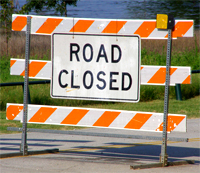 Massachusetts police officers assigned to protect public safety at roadside construction details are increasingly becoming the victims of car accidents themselves.
Massachusetts police officers assigned to protect public safety at roadside construction details are increasingly becoming the victims of car accidents themselves.
On Dec. 5, a Peabody police officer was struck by a 1991 Chevrolet pick-up truck while working on a Rte. 1 construction detail. He was thrown over the truck’s hood and transported to Massachusetts General Hospital with serious personal injuries. An initial police investigation found the driver was speeding, but it remains ongoing.
In recent years, negligent drivers have struck police officers on several construction details in Massachusetts and caused life-threatening personal injuries. In June 2010, state police Sgt. Douglas Weddleton was killed while working on a construction detail on Interstate 95 in Mansfield. The driver was charged with operating under the influence as well as other driving infractions.
Police officers are not the only ones vulnerable in construction site accidents. Construction workers as well as pedestrians, homeowners and others nearby are also at risk for injury, especially during night construction.
Drivers have a responsibility to operate with care in construction areas. Here are a few ways to make your travel safer:
Avoid Construction Zones If Possible. When you find a construction project on your daily commute, see if you can find an alternate route until work is complete. For projects in your local community, pay attention to your town’s government website and contact the police department’s business line if you have questions.
Identify Who Is In Charge of Traffic. Detail police officers typically direct traffic on many sites, but other work sites utilize civilian flaggers. The civilian flaggers should be dressed in fluorescent clothing and carrying traffic direction signs.
Give Other Drivers Space. Do not travel too closely behind other vehicles. It can be difficult to anticipate when another vehicle may stop short.
Slow Down. We all want to reach our destinations on time, but once you are stuck in construction traffic, it is best to take a deep breath and be as patient as possible to avoid a car accident.
Keep Your Eye on the Traffic. When there is a lot of activity going on at a construction site, there is a natural tendency to look at the crew and different machinery. But it is important to keep your eyes on the road.
Do Not Stop to Talk to the Detail Officer. Even if traffic volume is low, do not stop and ask the detail officer for help or directions. You are putting the officer at risk and confusing other drivers.
Avoid Construction Work Zones At Night. A large number of car accidents occur during night construction work because drivers are speeding, fatigued, operating under the influence or poor lighting.
Pedestrians and Cyclists. Like cars, it is also important for pedestrians and cyclists to follow the detail officer’s instructions for when to pass.
Read More
Focus on Seat Belt Use During National Teen Driver Safety Week
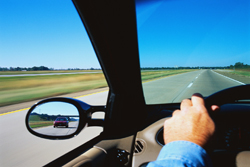 Attention is on seat belts and occupant protection as the National Highway Traffic Safety Administration (NHTSA) observes National Teen Driver Safety Week from October 16 through October 22.
Attention is on seat belts and occupant protection as the National Highway Traffic Safety Administration (NHTSA) observes National Teen Driver Safety Week from October 16 through October 22.
Each year, the NHTSA hosts this week to educate the public on protecting teens behind the wheel.
The NHTSA reports teenage drivers and passengers are the least likely to wear seat belts. But seat belts are one of the most effective ways to travel safe. Most people who die in motor vehicle accidents are vehicle occupants, many of whom were not wearing seat belts. Less than 25 percent of traffic accident fatalities are pedestrians, bicyclists and motorcyclists, according to the NHTSA.
By contrast, in 2006 seat belts saved over 1,5000 lives nationwide among passengers over 4 years old, according to the NHTSA.
The NHTSA urges parents and teens to practice safety through seat belt use, by following graduated licensing laws, developing parent-teen contracts and avoiding alcohol consumption.
Massachusetts Junior Operator Law. Many states have implemented graduated licensing laws to place restrictions on teen driving. Under the Massachusetts Junior Operator Law, in the first six months of holding a license, operators under 18 cannot drive with another passenger under 18 years old. The lone exception is they can drive with a sibling as passenger. Teen drivers are also not allowed to drive between 12:30 a.m. and 5 a.m.
Parent-teen contracts. There is strength in a parent-teen contract when it comes to setting expectations. Contract forms are available from many insurance companies, auto clubs, state offices or you can develop your own. Click here for a parent-teen contract produced by the state of Massachusetts.
Address all areas of concern, including seat belt use, how many passengers are allowed in the car and how late teens can drive. This is important even if the state’s junior operator law covers all of your concerns. The contract is between you and your teenager to create an extra level of accountability.
Alcohol. While teens are below the minimum drinking age, they carry the greatest risk for death in an alcohol-related crash. In 2006, 31 percent 15- to 20-year-old drivers involved in fatal crashes had been drinking. This increases the importance of no-tolerance and accountability among parents, teachers, sports coaches and other respected adults.
Read More
Driving With Dogs Is An Increasing Distraction On The Roads
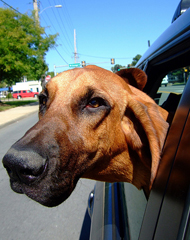 You are probably familiar with the list of distractions usually responsible for car accidents: texting while driving, talking on your cell phone, eating, the GPS and your children fooling around in the car.
You are probably familiar with the list of distractions usually responsible for car accidents: texting while driving, talking on your cell phone, eating, the GPS and your children fooling around in the car.
Well here’s another one to consider: if you are taking your family dog with you, there are additional things you should think about to avoid motor vehicle accidents.
Many people think about their dogs as affectionate friends, not as distractions on the road. But a new survey finds many drivers allow their dogs to ride with them in the car without restraints, increasing the risk for car accidents and serious injury to themselves and others, including the dogs.
The online survey by AAA and Kurgo, a manufacturer of pet travel products, polled 1,000 dog owners who had driven with their pets in the past year. More than half (56 percent) of the respondents reported driving with their dog at least once in the past month and 19 percent had taken their hands off the steering wheel to prevent their dog from jumping into the front seat.
Some 17 percent of the dog owners admitted to letting their dog sit on their laps as they drove and 13 percent said they fed their dog treats. Most alarming, 3 percent reported they had taken pictures of their dog while driving.
Only 16 percent reported putting their dog in a restraint while driving. Nearly 40 percent said they never considered buying a restraint and 42 percent said they believe their dogs are calm enough to ride without restraint.
While many of us have smiled at the sight of a dog hanging his head out of a car window, the survey highlights the fact that our dogs are becoming an increasing distraction on the roads. It is in everybody’s best interest to restrain animals in the car to avoid accidents.
The bottom line: Be your dog’s best friend. Get a proper restraint and avoid letting your dog be a dangerous distraction, even when just traveling around town on errands.
Read More
New Child Safety Seat Recommendations
The National Highway Transportation Safety Administration (NHTSA) and the American Academy of Pediatrics have issued new safety recommendations to protect young children from motor vehicle accidents. They are advising parents to keep children in rear-facing seats until age two, or until they reach the maximum height and weight requirements for the seat.
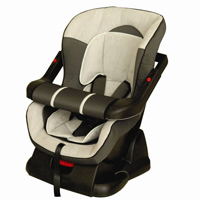
The previous recommendation from 2002 was also for children to ride in rear-facing car seats until they reached the maximum height and weight requirements – or until the child had reached a minimum of age one and 20 pounds. Using this standard, many parents turned the car seats around when their child reached age one.
The NHTSA and the American Academy of Pediatrics issued the recommendation citing a 2007 study in the journal Injury Prevention, which showed that children under age two traveling in rear-facing seats are 75 percent less likely to die or suffer severe injuries in car accidents.
The two groups made additional recommendations for booster seats, saying children should ride in them until they have reached four feet nine inches tall and are between eight and 12 years old.
The groups also recommend children ride in the backseat until they are 13.
The new recommendations come as motor vehicle accident deaths among children under age 16 have decreased significantly in recent years – 45 percent between 1997 and 2009, according to the American Academy of Pediatrics.
But motor vehicle accidents remain the leading cause of death for children ages four and older. More than 5,000 children, teens and young adults up to age 21 die in motor vehicle accidents each year. For every fatality, 18 children are hospitalized and more than 400 require medical care.
Massachusetts law requires child safety seats to protect children from car accidents. Children must be secured in child safety seats until they turn 7 years old.
Click here for more details about Massachusetts’ Child Passenger Safety Law.
Read More
Car Care Month Time to Check Your Car For Safety
October is a month to enjoy the fall foliage and help young children choose their Halloween costumes. But it is also a good time to prepare your car for the harsh winter driving that lies ahead.
The nation’s largest auto club AAA observes October as Car Care Month, giving all drivers reason to check their automobiles for safety. If you are a AAA club member, this means you are eligible for a $1 visual inspection at a local AAA location. On Saturday, Oct. 16, members can visit the Franklin, Rockland or Newton AAA offices for an inspection. On Saturday, Oct. 23, visual inspections will be offered in Saugus. Click here for a $1 coupon.
AAA club members can also prepare for winter with a free car battery test. Click here for those locations.
If you do not belong to an auto club, winter is the time to consider joining one. Another sound practice is to carry a cell phone with you while driving in case you breakdown or have a car accident and have to call the police, an auto club or family member for help.
In a year of car recalls, you may also want to check whether your car has been involved in a safety recall. The manufacturer should have notified you of any recalls. But if you are concerned about a smaller recall that may have slipped your attention, contact your local car dealer or visit www.recalls.gov/.
Our last suggestion is to put together a car safety kit should you ever get stuck on the roadway or in a car accident. Here are some things to include:
- First aid kit
- 12-foot jumper cables
- Four 15-minute roadside flares
- Colored safety vest to wear in case of breakdown
- Extra fuses
- Flashlight and extra batteries
- Tool kit with screwdrivers, pliers and adjustable wrench
- Tire inflator (such as a Fix-A-Flat)
- Tire pressure gauge
- Rags
- Roll of paper towels and duct tape
- Pocketknife
- Ice scraper
- Pen and paper
- Help sign
If you have an accident, remember to record all relevant information, including the name, address, license number of the other driver, the model and registration of any vehicles; and the names, addresses and phone numbers of any witnesses.
Read More



